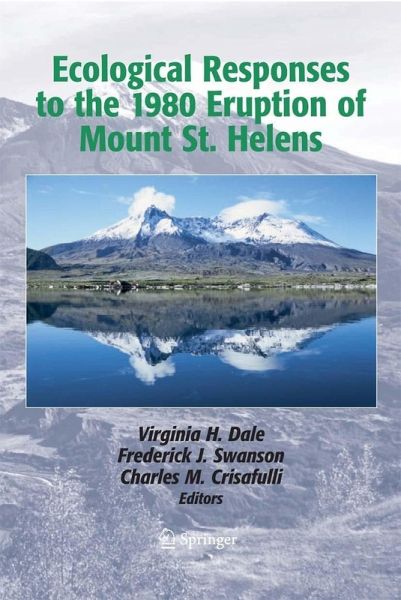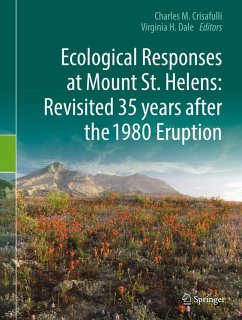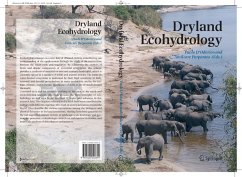
Ecological Responses to the 1980 Eruption of Mount St. Helens (eBook, PDF)
Versandkostenfrei!
Sofort per Download lieferbar
40,95 €
inkl. MwSt.
Weitere Ausgaben:

PAYBACK Punkte
20 °P sammeln!
Based on one of the most studied cases of volcanic activity, this book synthesizes the comprehensive research conducted for twenty-five years since the eruptions of Mount St. Helens. Research from geology as well as plant and animal ecology has been integrated into a complete, long- term study of the effects of volcanic activity. The authors contribute first-hand knowledge of this significant event, and its aftermath in the natural history of the earth. Questions about what actually happens when a volcano erupts, what the immediate and longterm dangers are, and how life reasserts itself in the...
Based on one of the most studied cases of volcanic activity, this book synthesizes the comprehensive research conducted for twenty-five years since the eruptions of Mount St. Helens. Research from geology as well as plant and animal ecology has been integrated into a complete, long- term study of the effects of volcanic activity. The authors contribute first-hand knowledge of this significant event, and its aftermath in the natural history of the earth. Questions about what actually happens when a volcano erupts, what the immediate and longterm dangers are, and how life reasserts itself in the area are discussed in full detail.
Dieser Download kann aus rechtlichen Gründen nur mit Rechnungsadresse in A, B, BG, CY, CZ, D, DK, EW, E, FIN, F, GR, HR, H, IRL, I, LT, L, LR, M, NL, PL, P, R, S, SLO, SK ausgeliefert werden.













